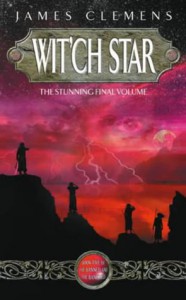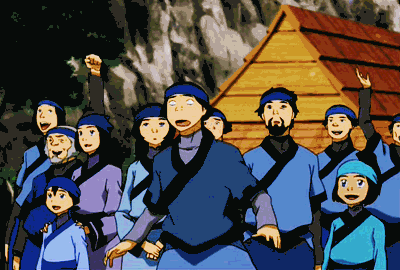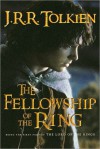Wit'ch Star
 Without a doubt, I have to start this off by saying this is the best of the Banned and the Banished series. Something seemed to change between book 3 and book 4 - the writing had vastly improved and the characters were actually showing some semblance of depth and development. It was a refreshing uplift to the entire series.
Without a doubt, I have to start this off by saying this is the best of the Banned and the Banished series. Something seemed to change between book 3 and book 4 - the writing had vastly improved and the characters were actually showing some semblance of depth and development. It was a refreshing uplift to the entire series.Wit'ch Star followed through with that, and the writing quality - as far as it goes for this series - was very spot on. Obviously still not perfect - no writing is. But considering its very, very shaky roots, this was really enjoyable to read and I'm pleased it turned out that way.
Spoilery bits after the cut ~
Let's jump straight into the cons, as I've marked down a lot of them:
Harlequin Quail - I'm usually wary of jester/fool/harlequin characters, because more often then not I fucking adore them. Seriously, throw a fool into the story and I'll just melt.

However. Despite having the default +5 bonus to instantly becoming my favourite character, jester characters almost always seem to follow the exact same formula: they're strange in some way (mentally troubled or disabled or genius, seriously foreign, etc), they are brutally honest and hilariously clever for it, and they're generally set up like rogues from pretty much any RPG game out there. With a ton of bells attached. Now, there's nothing at all wrong with that - it just doesn't tend to leave much wiggle room for an actual, interesting, unique sort of character.
I don't quite remember which book Harlequin was originally introduced in, but I know for certain it wasn't Wit'ch Star. I got quite excited when a jester was introduced, but he literally only showed up once in the entire story until book 5, when he blasts onto the scene and is suddenly all up in everyone's faces, in a outgoing, cocky background character sort of way. There's almost no point to his existence. He doesn't add anything to the story, he doesn't get involved with any of the other characters, he doesn't Save The Day or Turn Darkside and betray the team. He does share information, very important information at the start of the book - but that's it. He was the Sy-wen and Kast plot device character of Star. I loved his arrogance and wanted to see him furthered as a character - but nope. Shame really.
The One - Normally an instant put-off, unless it's Harry Potter barring certain notable exceptions. After Mogweed messes about with dead Mycelle's rainbow snake and somehow fuses him and Fardale into one body, they're referred to by some si'luran prophecy/fable/warning/something that they will either herald their redemption, or their doom. Something along those lines. Point being, at least I can appreciate that, in this case, the term is used a little more literally - two becoming one. Therefore, they are the One instead of the Twins. It makes sense, and isn't really played out beyond that, which I actually appreciate even though it seems mildly silly.
Literally - This isn't really a beef with Wit'ch Star specifically, rather something that clearly pops up in fantasy a lot. After the attack upon the gathered og're clans by Vira'ni, Tol'chuk decides to clear out the nest of her children with fire. He notes that previously, Elena needed both her standard, run-of-the-mill fire magics, as well as her coldfire, in order to kill them. Apparently the cold part of it wasn't important, as Tol'chuk decides that having two types of fire as well will give him what he needs to defeat the children - normal fire fuelled with oil, and the raging fire of vengeance in our hearts, the bloodlust of a united og're people aaauuuuggghhhh! Brings me back to Eowyn being a complete bad-ass and slaying the Witch King, because she is not a man.
I might be looking into this too much though. So yes, this is definitely more of a personal peeve than any fault of the writing I think!
Everyone is very unstable, seriously - They're always dropping to their knees, falling into stunned silences or nodding relentlessly. It felt worn out and ridiculous after the first few repetitions. There are more ways to react to situations, especially as everyone of these characters is supposedly different (hint: they're really not. The newer characters are quite interesting - the original party, with the exception of perhaps Mogweed and Meric, are not.) and therefore will really not realistically always fall into a stunned silence upon hearing a shocking revelation/won't necessarily drop to their knees upon witnessing something really awesome or horrifying/is probably just as willing to mass ignore a room of people because they're in a bad mood, instead of taking thirty-five minutes to nod at every single one of them. It is not realistic, it does not define the characters well, and it shows lazy writing in my opinion.
Greshym - I sort of liked him. Over time, he definitely broke away from the main evil core in the story, becoming entirely his own thing and refusing to bow his head to anyone (unless it benefited him in some way). I liked reading his scenes, and he tended to stand out a lot more as a bad guy to me than...pretty much every other villain in the book. Especially Shorkan, whom I was exceptionally disappointed with (he has a major connection to a major character, and you don't play on that and make us feel the pain that Er'ril must go through...probably poorly handled there) and did not care for at all. Even Ly'chuk, the head honcho, the big baddie, was disappointing. Yes, at least he did have personal and misguided reasons for doing what he was doing, but there was neither enough build-up to the revelations (which weren't hard to predict anyway) and not enough time to appreciate him as a character. It makes the entire series feel very thin - that they went through so much and travelled so far for a whiny, greedy og're. The #1 Villain in a story should not feel like a simple plot device, which he did.

I honestly don't know what was going on here. So many of these characters only seemed to exist to kick the story in one direction or another, and that was that. That is exactly what Ly'chuk felt like, and wow, that wasn't nice. He had so much potential to be cool as hell (seriously, he imprisoned a god, come on) but just fell flat on his face to me. Wasn't pleased about that.
Okay back to the Greshym point! His death - hugely anti-climactic. This is a character that has been leading us through the story, letting us see things from the eyes of a bad guy. I'm sure I'm not the only one who really enjoyed his segments of the story, and to see him killed off so easily, and frankly, so ridiculously, was pretty grating to me.
On the other hand, I can appreciate the message that was being portrayed - that the greatest of powers can be toppled by something tiny, something you may not have foreseen because it was too simple, too obvious. His arrogance and lust for greater power got him killed, and it was interesting that it wasn't through a massive power battle. Just a simple dagger.
Forewords - These had potential to be interesting little hooks, giving us some insight into the true timeframe the books are supposedly being read in, clearly a time much later than the events that were happening. After reading the final book though, it shows that they really served no purpose whatsoever. I instantly forgot about them once I turned to the first page of the story proper, and was sincerely surprised to continue seeing them crop up at the start of each book. They're really only there to hook a reader, and even then not very well, as they seem so utterly foreign from the story.
The Triad - The battle with the corrupted Triad at the Spirit Gate seemed contrived and pointless. There was essentially no reason for it to happen. It did not further the story in any way, and action for the sake of action does not a good chapter make.
Interest - This is my absolute biggest con, and it is serious in that it essentially dwarfs all of the cons I've written for all of the books in this series smushed together and cloned and then all put into an aircraft carrier and then wrapped in the pages of this book.
It is unspeakably important for a reader to be interested in the story from the get-go, not halfway through the fourth book. That is never where you want to find yourself as an author. I remember mostly nothing from anything before Gate, and I don't really want to. The writing was not quality, the characters were not quality, the world-building had great potential but without the support from the other two it just puttered out and was lost in the background. You, the author, need me, a picky reader, to actually want to continue reading these from the first chapter of the first book.
No other flaw in the series can even come close to the importance of that one.
Now for some cheery pros, because I actually do have a fair few ~
Joach - He went through a lot of development here, becoming almost more of an anti-hero than that silly, slightly clueless puppy that followed his sister around in the first few books. It really goes into overdrive when Greshym takes his youth from him - he can finally understand and appreciate exactly what he's lost, what his own stupid decisions have wrought. He is interesting as a bitter, handless old man, hollow with his despair at the loss of Kesla and willing to go through anything to get her back. His dream-sculpting abilities could've shown up more and been far more prominent, but for the most part, he was pretty enjoyable.
Continuity - There was a surprising amount of it, which was really great. Joach drawing on Ragnar'k's leftover magics in his stone chamber was a brilliant and slightly dark action of his.
Also, Rorshaf makes a reappearance.

A lot of loose ends get tied up and addressed, and that really made reading this enjoyable for me. Of course, there's likely a good number that haven't been dealt with (there usually are, no matter the book), but that was overshadowed by the amazing powers of continuity. Not only that, problems and realistic pains that they have caused to other peoples in the previous books are both being brought to light, and sorted out. Yes.
Romance - I hate it. I can't stand romance. It makes me want to rip my eyes out and then scrub my face with lemon juice. I cannot stress how much I dislike it - yet I couldn't help but approve of how slowly Elena's and Er'ril's relationship grew. It definitely wasn't a one-book fling - this started ages ago, back before I really had an interest in what I was reading. Granted, I didn't enjoy the romantic aspects of the book one bit, but I can at least tip my hat to that. Speaking of lovey-dovey couples...
Kast - He punches Sy-wen in the face when she's possessed.

I really loathed these two. I was shocked as hell to see Kast do something apparently out of character for him. Actually I'm still really surprised. That's going to take a while to wear off, really.
All in all, I enjoyed this book. I'm amused to admit that I had a lot more fun reading these than I'd originally anticipated, especially once the story picked up in Gate. It's highly unlikely I'll read them again, but I'm happy to have them on my bookshelf. Not only because they were a gift, but because they collectively rather remind me of the internet-wide obsession for exceptionally aderpable animals.







